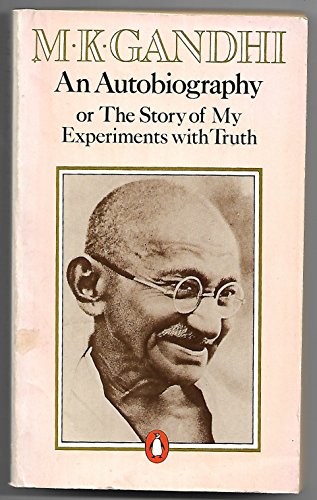Mohandas Karamchand Gandhi was born in Western India in 1869. He was educated in London and later travelled to South Africa, where he experienced racism and took up the rights of Indians, instituting his first campaign of passive resistance.
In 1915 he returned to British-controlled India, bringing to a country in the throes of independence his commitment to non-violent change, and his belief always in the power of truth. Under Gandhi’s lead, millions of protesters would engage in mass campaigns of civil disobedience, seeking change through ahimsa or non-violence.
For Gandhi, the long path towards Indian independence would lead to imprisonment and hardship, yet he never once forgot the principles of truth and non-violence so dear to him.
Written in the 1920s, Gandhi’s autobiography tells of his struggles and his inspirations; a powerful and enduring statement of an extraordinary life.
The son of a senior government official, Gandhi was born and raised, trained in law in London he became famous through being the man who freed India from Colonization. This is his personal account of his life through the Satyagraha movement. Covering his early childhood, legal studies, purification and freeing of his homeland Gandhi takes care to recount his experiences. Mahatma Gandhi has been a inspiration for many movements since his death in 1948.
![]()
